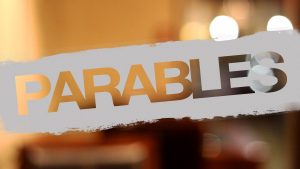
The “knowledge of evil” versus “actual evil”
What's the difference between knowledge of evil versus actual evil? Well, in But I was certain that evil existed, we saw that both good and evil have always been present in our part of God's creation. But if both have always existed, then how come God said, after He created ...

But I was certain that evil existed
Evil Exists: "Only minutes ago I doubted anything that might be called supernatural; now I knew that I had been naive. I knew neither the extent of it nor the means by which to deal with it, but I was certain that evil existed. I had come face-to-face with it ...

Who is the wise one in Jesus’ parable about building?
Who is the wise one in Jesus' parable about building? In the parable of the wise and foolish builders, Jesus compared, obviously, a wise builder and a foolish one. Of course, we want to emulate the wise builder. So let's take a look at him. What is it that made ...

Are we all supposed to be the same?
Are we all supposed to be the same? That's probably a question lots of us ask. I'm asking it right now. So this is as much for me as it is for anyone. If you're asking whether we're all supposed to be the same, hopefully this will help you and ...

What does it say when fewer than 50% of the people in America belong to a church?
The headline in Christianity Today is shocking: Gallup: Fewer Than Half of Americans Belong to a Church. How can that be when somewhere between 70-80% of the population claims to have some religious affiliation? Ultimately, what does it say when fewer than 50% of the people in America belong to ...

What is the biggest regret in life for most people?
What is the biggest regret in life for most people? That's an important question. It seems so sad to reach the end of our life, and have some big huge regret. While it won't necessarily be the biggest regret in your life, it is worthwhile to see what other people ...

Parables told by Jesus
The parables told by Jesus are in the New Testament. However there's no such thing as a complete list that all denominations agree on. So, we'll use this list: ...

Do Christians have to believe God is God on Easter?
Do Christians have to believe God is God? I know, it seems like a stupid question. Until I read an article at salon.com titled, Do Christians believe God resurrected Jesus from the dead? Well, it's complicated. Really? It's complicated? How complicated can it be? If God is God, then why ...

Life with cancer – from patience to trust and hope
Life with cancer - from patience to trust and hope. I knew it was going to happen. The only question was when. After prostate removal, the biopsy showed my cancer was more aggressive than previous biopsies indicated. It also showed more cancer than what was expected. Finally, it also showed ...

Is strong Christian faith needed before God will heal us?
Is strong Christian faith needed before God will heal us? Some people say absolutely yes. Strong Christian faith will bring miraculous healing from God. On the other end of the spectrum, there are also some who say there aren't any miracles anymore. Various reasons are given for the lack of ...
